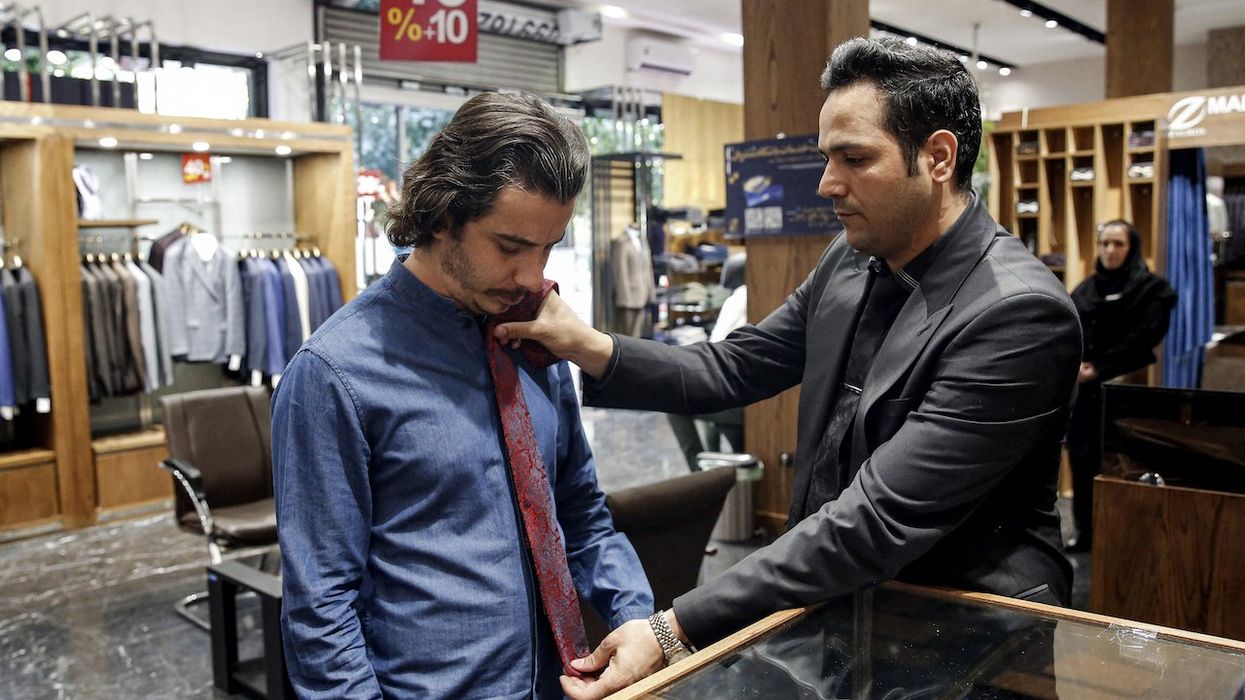
A shopkeeper assists a customer with a tie at a clothing shop in the north of Iran's capital Tehran, Sept. 7, 2022. (Photo by AFP via Getty Images)

Neckties symbolize "the cross," and Muslim men shouldn't wear them, a senior Afghan Taliban official said Wednesday, according to Agence France-Presse.
Mohammad Hashim Shaheed Wror, head of the Invitation and Guidance Directorate — which works to guide Muslims concerning adherence to Islamic practices — said in a speech broadcast by Tolo TV that the necktie's symbolism "is obvious in Islam," AFP reported.
"What is a tie? It is the cross," he said, according to the outlet. "It is ordered in Sharia that you should break it and eliminate it."
Wror also said "sometimes when I go to hospitals and other areas, an Afghan Muslim engineer or doctor uses a necktie," AFP noted.
The outlet said Taliban authorities haven't imposed any dress rules on men since taking over in August 2021 — but women must use hijabs, or head coverings, in public.
Almost all Afghan Taliban officials dress the same, AFP said, adding that they wear a shalwar kameez — a waistcoat — and a turban.
The outlet noted that casual Western clothing became less common after the Taliban takeover, but some professionals — including newsreaders on TV channels — still wear ties and collars.
Previous Afghan administrations have tried to impose dress regulations on the population — or at least on officials, the outlet said.
More from AFP:
During the decade-long Soviet occupation starting in 1979, government workers were discouraged from wearing traditional attire and told to wear suits.
Former President Ashraf Ghani — who fled the country as the Taliban took over in 2021 — favored Western suits when abroad and traditional attire at home.
During their two-decade insurgency, the Taliban's fighters wore shalwar kameez, but since taking power have introduced modern military uniforms for the armed services.
As you might guess, commenters perusing the AFP story on Yahoo! News aren't exactly down with the Afghan Taliban's head of the Invitation and Guidance Directorate. Here's a sampling:
Like Blaze News? Bypass the censors, sign up for our newsletters, and get stories like this direct to your inbox. Sign up here!